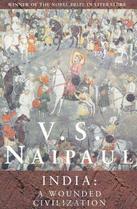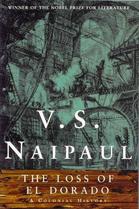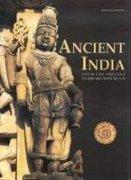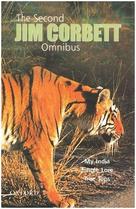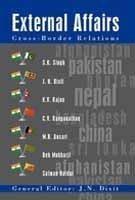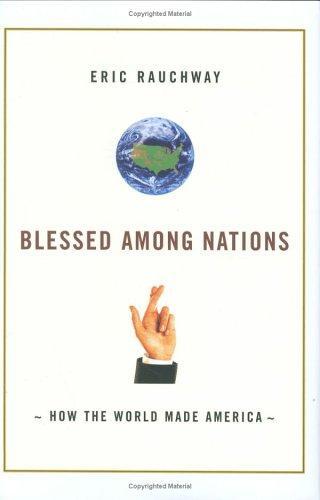 29.0%OFF
29.0%OFF

Download App
| >> | LShop | >> | Book | >> | Humanities | >> | History | >> | Blessed Among Nation... |
 29.0%OFF
29.0%OFF
Blessed Among Nations: How the World Made America
-
ISBN
:
9780809055807
-
Publisher
:
Hill and Wang
-
Subject
:
History, Economics, Politics & Government
-
Binding
:
HARDCOVER
-
Pages
:
256
-
Year
:
2006
₹
2555.0
 29.0% OFF
29.0% OFF
₹
1814.0
Buy Now
Shipping charges are applicable for books below Rs. 101.0
View DetailsEstimated Shipping Time : 5-7 Business Days
View Details-
Description
In a mere fifty years, the United States transformed itself from a second-tier country crippled by its effort to abolish the appalling institution of human slavery into a great power unlike any the world had ever seen. The question of how it did this should command our attention all by itself, but the question of why it became such a peculiarx2014;and incompetentx2014;empire surely ranks as one of the great questions of modern history. For truly, measured by consequences, few global disasters can match the mismanagement of the international system in the 1920s, which owed almost entirely to bad decisions made in America. All that saves the United States from complete responsibility is the answer to the first question, of how this change happened so fast: America became a great power so swiftly, and became such a peculiar empire, because the rest of the world made it that way.Globalization does not always level the worldx2019;s playing field. It produces winners, losers, and, on occasion, global economic disasters. As Eric Rauchway compellingly shows, no nation so clearly reflects the effects of globalizationx2019;s uneven influence than the United States. A historianx2019;s answer to the rosier predictions of journalists, Blessed Among Nations is a sharply narrated reminder that we need merely to review the decades between the end of the Civil War and the aftermath of World War Ix2014;the first era of globalizationx2014;to realize that one nationx2019;s enrichment need not benefit the whole world.An incisive explanation of why America has inspired more envy than imitation, Blessed Among Nations warns that if we do not better understand how the United States failed, early on, to master the forces that made it what it is, we stand to make the same mistakes again, in a world with even higher stakes. Eric Rauchway has written for the Financial Times and the Los Angeles Times. He teaches at the University of California, Davis, and is the author of Murdering McKinley: The Making of Theodore Roosevelt's America. He lives in northern California. In a mere fifty years, the United States transformed itself from a second-tier country crippled by its effort to abolish the appalling institution of human slavery into a great power unlike any the world had ever seen. The question of how it did this should command our attention all by itself, but the question of why it became such a peculiarx2014;and incompetentx2014;empire surely ranks as one of the great questions of modern history. For truly, measured by consequences, few global disasters can match the mismanagement of the international system in the 1920s, which owed almost entirely to bad decisions made in America. All that saves the United States from complete responsibility is the answer to the first question, of how this change happened so fast: America became a great power so swiftly, and became such a peculiar empire, because the rest of the world made it that way.xA0;Globalization does not always level the world's playing field. It produces winners, losers, and, on occasion, global economic disasters. As Eric Rauchway compellingly shows, no nation more clearly reflects the effects ofxA0;globalization'sxA0;uneven influence than the United States. A historian's answer to the rosier predictions of economists, Blessed Among Nations is a narrated reminder that we needxA0;merely toxA0;review the decades between the end of the Civil War and the aftermath of World War Ix2014;the first era of globalizationx2014;to realize that one nation's enrichment need not benefit the whole world.xA0;An incisive explanation of why America has inspired more envy than imitation, Blessed Among Nations warns that if we do not better understand how the United States failed, early on, to master the forces that made it what it is today, we stand to make the same mistakes again, in a world with even higher stakes. "I can always depend on Eric Rauchway to display the meticulousness of a careful historian with the literary flair of a fine novelist. Blessed Among Nations: How the World Made America adds to this admixture a powerful public voice as well. A tour de force."x2014;Eric Alterman, author of When Presidents Lie: A History of Official Deception and Its Consequences "I can always depend on Eric Rauchway to display the meticulousness of a careful historian with the literary flair of a fine novelist. Blessed Among Nations: How the World Made America adds to this admixture a powerful public voice as well. A tour de force."x2014;Eric Alterman, author of When Presidents Lie: A History of Official Deception and Its ConsequencesxA0;"American 'exceptionalism' is one of those things often asserted, seldom proved. By setting the history of the United States in the context of the history of the first age of globalization, Eric Rauchway has come up with a powerful new argument about what exactly made the American experience different. Blessed Among Nations is brilliant and convincing."x2014;Niall Ferguson, author of Colossus: The Rise and Fall of the American EmpirexA0;"With his trademark lapidary elegance, Rauchway shows us that America's position astride the currents of globalization is due not merely to a mysteriously voracious capitalistic impulse, but also to often fortuitous effects of seemingly unconnected particulars."x2014;John McWhorter, author of Winning the Race: Beyond the Crisis in Black AmericaxA0;"Written by an accomplished, imaginative historian who well understands those beginnings of modern Americax2014;the years of the Progressive Erax2014;this book on one level suggests why socialism never took root in the United States, and why the supposed melting pot and the early Federal Reserve System worked as they did, but on quite another level develops a highly revealing argument how Americans' faith in their 'empire' and their exceptionalism shaped in often unexpected ways what we now call globalization and their part in it."x2014;Walter LaFeber, Tisch University Professor, Cornell UniversityxA0;"Laying the groundwork for American empire was an international enterprisex2014;so why doesn't the world want to be American? 'The earth's people have more often envied than imitated America,' writes Rauchway, preferring parliamentarianism and welfare statism to republicanism and laissez-faire. To find out why, Rauchway examines America's rise to empire, which occupied the years between 1865 and 1917. During that time, he writes, America received both financial and human capital from abroad; the working class was predominantly immigrant, as was the army that tamed the western frontier, while huge flows of European cash into the post-Civil War economy made an industrial super-revolution possible, leading to a manifold increase in the nation's wealth. Yet Americans refused to do the things that newly wealthy countries dox2014;namely, invest in public infrastructure and build social-welfare institutions and mechanisms. Rauchway observes that just before WWI, America's army was smaller than Ethiopia's, while 'relative to the size of its economy it had a smaller government than the Netherlands;' he reckons that at least some of the refusal to build a welfare state had precisely to do with the fact that the working class 'appeared visibly to consist of people from other countries,'
Related Items
-
of












 1814.0
1814.0






 446.0
446.0


